Every person has certain values that are important to them and by which they live. In our new series we want to introduce you to the values of our society and our coexistence through yoga teachers. Today with Nicole from Kiel, with the value:
Freedom
(including free guided meditation/hypnosis on the topic of letting go)
Free development opportunities
Feeling free inside, in my being, is one of the most important values in my life and that is also the reason why I chose the value FREEDOM for this series of articles.
I associate freedom with happiness, lightness, freedom from worries, being able to spread out, develop and express what is within me. I want to be able to decide for myself and simply develop freely.
What is freedom?
Freedom can be well explained in terms of its opposite: you are free when you are not trapped or oppressed - this can refer to external factors such as money, professional opportunities or personal physical or internal mental or emotional levels. Freedom of action, for example, refers to the fact that you can do what you want. Emotional freedom refers to your feelings. These are different aspects that do not have to agree. For example, you may have the freedom to do whatever you want because you have enough time and money - but you may feel emotionally trapped. Freedom can refer to many different areas:
- on the society in which you live
- on politics
- Nutrition
- Freedom of the press
- Artistic freedom
- Profession/vocation
- Family life
- spirituality
- ...and also yoga - I'll talk about that later in this article
Freedom is always relative because it is always integrated into a certain context. Where one person feels free, another can feel terribly imprisoned. Because every person lives in a different context (values, beliefs, experiences, etc.).
Opportunities, autonomy and independence
When you are free, you can decide freely. This assumes that there are options that you can choose between. This decision is then made free of pressure, free of others and based on what you want. Freedom then also means a certain autonomy .
When it comes to freedom, the term independence is sometimes mentioned. But for me these are two different values. For example, you can be (involved) in a partnership and feel free inside or, on the other hand, live independently of a partner and still not be free. How this shows up for you depends on how your internal reference system is designed. So it's also about what is important to YOU .
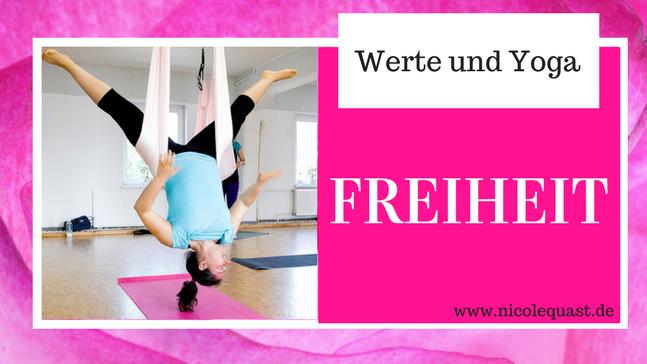
Inner freedom and personal responsibility
I'll now make a general statement: Every person gets in their own way from time to time and thus limits their freedom. This becomes apparent, for example, in situations in which you could do something that you would like to do - but you don't do it. Sometimes the reason lies in the work that would have to be done (e.g. losing weight/dieting) or the consequences that would arise (cheating/end of relationship). So with your freedom comes personal responsibility. You have to think for yourself and figure it out. To do this you also have to get to know each other. And if you then freely decide to do or not do something, then you can no longer blame anyone. Can you handle so much freedom?
The question is here:
How much freedom can you even handle?
Limitless freedom versus limited freedom
The song by Reinhard Mey comes to mind:
“Freedom must be limitless above the clouds.”
Yes, above the clouds, where there is no one else, nothing to be taken into account, freedom can also be limitless. But integrated into real life there is no limitless freedom. What happens when one person exercises their freedom to such an extent that it restricts the freedom of another person? If everyone does what they want, it will soon end in chaos. In my opinion, freedom needs limits, otherwise it is anarchy.
Freedom needs boundaries and a certain framework in which it can take place safely.
It is often easier to be limited than to have absolute freedom.
Nicole Quast Prell
Children, for example, also need boundaries in order to be able to develop freely. They need something to hold on to. They need certain boundaries where they can grow. And as life progresses, these boundaries change. Depending on where you are and what phase of life you are in, you need more or less freedom.
“If you don’t want to comply with the laws, you have to leave the area where they apply.”
Johann Wolfgang von Goethe
Develop freedom
Freedom is not always given; you often have to work for it first. For example, you first have to earn money before you can spend it freely. Many modern developments and achievements have to do with freedom that was achieved by people before us, here are 3 examples:
- Slavery was abolished.
- The Berlin Wall was torn down.
- In the past, many things were predetermined: The eldest sons took over their father's farm. Today you can choose your career (to a certain extent). In the past, who you married was dictated to you, but today you choose (to a certain extent) who you spend your life with.
Here are 3 questions for you to ponder:
- How much freedom is healthy for a person?
- When do you feel free?
- How can you be involved in your everyday life and still feel free?
Letting go for inner freedom
If you want to become free inside, then you have to be able to let go. Letting go of your beliefs, your worries, your prejudices – these are all just thoughts. If you want to feel free inside, learn to let go of your thoughts.
A quote from Nelson Mandela fits this:
“As I walked out of the cell through the door toward freedom, I knew I had to leave my bitterness and hatred behind or I would be trapped for life.”
Free guided meditation/hypnosis: I have developed a guided meditation/hypnosis for you that will help you learn to let go. Just write me a message using the contact form here http://nicolequast.de/kontakt and I will send it to you.
Freedom in yoga
For this series of articles, I now relate the concept of freedom to yoga. I'll take up 5 lines of thought that come to mind:
1. Types of Yoga
There are many different approaches to yoga. In one form, everything is strictly prescribed, from exercise selection to diet to general lifestyle. The freedom to decide for yourself where to go is severely limited. And then there are forms that are very free and allow for individuality and incorporate it into the style of practice. There you may feel that there is no point in trying to dictate everything because people are different and that forcing a body or a mind into a certain predetermined shape is rather harmful to the personality. The type of yoga says nothing about how freedom-promoting it is for a person. For someone who is insecure and chaotic, the strict forms of yoga may be exactly the right thing to achieve inner freedom. So context plays a role.
2. Physical freedom
With the yoga exercises/asanas you can physically gain more freedom of movement in your body through regular practice. So you have to do something here before you can enjoy physical freedom (again). You have to work for them regularly.
3. Freedom of mind
Through concentration and meditation exercises, you can train your mind and perhaps achieve blissful states. Through regular meditation you can also break away from old patterns and free yourself internally. Here too, you have to do something yourself or learn to let go of doing it.
4. Freedom and personal responsibility
As mentioned above, with freedom comes personal responsibility. And that is an important pillar in yoga. You are responsible for yourself - this is the perfect framework for your freedom. In yoga, the power of self-responsibility can be promoted through mindfulness and awareness of what is going on within you. Everything you think and do has an effect/consequence. The more consciously and responsibly you can deal with it, the freer you will be, because you now have guidelines to stick to.
5. Which form of yoga promotes freedom?
Of course I can't say what it's like for you. But for me, aerial yoga is the form of yoga that makes me happiest of all. You will always hear that aerial yoga awakens the inner child - and that is true. I have trained in various forms such as Power Yoga, Vinyasa Yoga, Yin Yoga and have written a book about my experiences with Bikram Yoga (“ 30 Days of Hot Yoga ” on Amazon) – but of all of them, Aerial Yoga is my favorite. Aerial yoga frees the body and mind from stress and blockages in a playful way.
Who decides which form of yoga is good for you, how often and in which society?
…
I hope you said “ I ”!
I could write so much more about the topic, but I'm taking the liberty of finishing this text now. This way, what is shared also gets a frame 😊
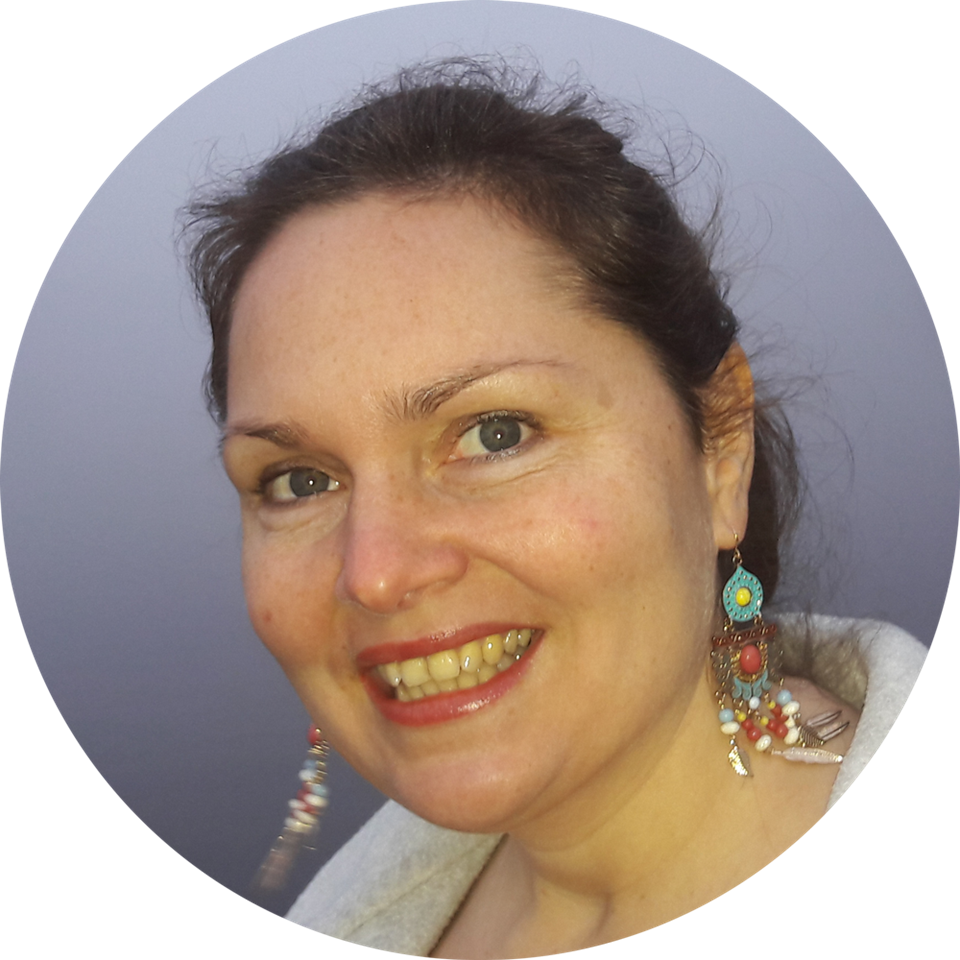
With this in mind, I wish you a freedom that is perfectly tailored to you in your current situation!
Namaste,
Nicole
***
Nicole Quast-Prell, MA
Coach, author, Pilates & yoga teacher and trainer
My name is Nicole, I live in Kiel and have been on various yoga paths and paths that have nothing to do with yoga since 1999. I first learned about Pilates and then yoga at an aerobics convention - so I originally came from the fitness scene. I love the freedom to try out different things and always discover new things for myself. I just really enjoy teaching (for 25 years) and also love training yoga teachers and Pilates trainers (for 15 years). I love my husband, YouTube videos, the sea, dancing, hanging out with friends, painting, guided meditations, singing, eating, traveling and going to the sauna.
Nicole's body-mind-soul blog:
www.nicolequast.de
Link to the contact form for free guided meditation/hypnosis on the topic of letting go: http://nicolequast.de/kontakt/
Aerial Yoga:
www.aerial-yoga-kiel.de
https://findedeinyoga.org/yogaLehrer/yoga-aerial-yoga-mit-nicole-quast-prell
Nicole's YouTube channel:
https://www.youtube.com/user/vitalpotential/videos
Would you like to share your thoughts on a value in our society related to yoga? Then please send us an email to mail[at]findedeinyoga.org . We are happy!
You can find all previously published articles in the “Values and Yoga” series here .

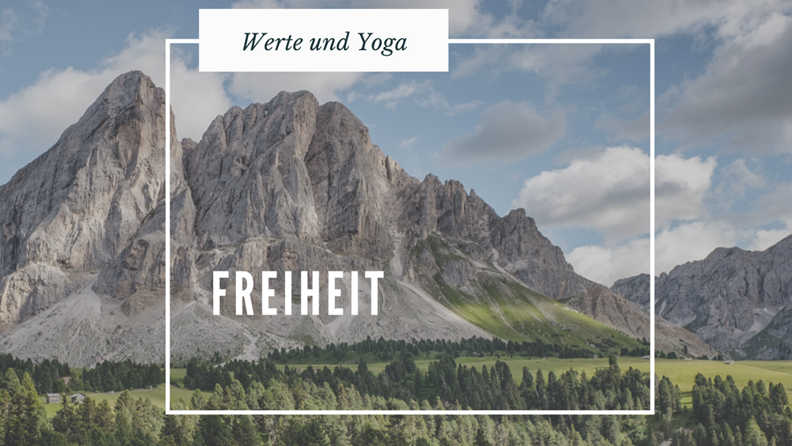

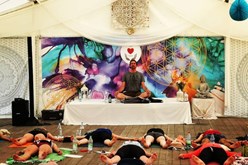
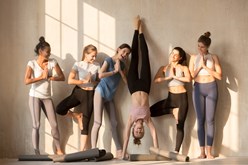
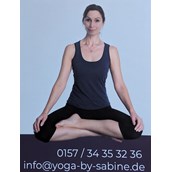
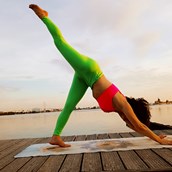

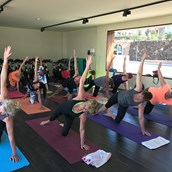
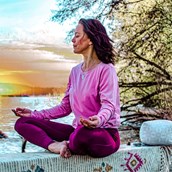

.png)